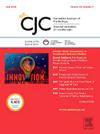Revolutionizing Cardiology With Words: Unveiling the Impact of Large Language Models in Medical Science Writing
IF 5.8
2区 医学
Q1 CARDIAC & CARDIOVASCULAR SYSTEMS
引用次数: 0
Abstract
Large language models (LLMs) are a unique form of machine learning that facilitates inputs of unstructured text/numerical information for meaningful interpretation and prediction. Recently, LLMs have become commercialized, allowing the average person to access these incredibly powerful tools. Early adopters focused on LLM use in performing logical tasks, including—but not limited to—generating titles, identifying key words, summarizing text, initial editing of scientific work, improving statistical protocols, and performing statistical analysis. More recently, LLMs have been expanded to clinical practice and academia to perform higher cognitive and creative tasks. LLMs provide personalized assistance in learning, facilitate the management of electronic medical records, and offer valuable insights into clinical decision making in cardiology. They enhance patient education by explaining intricate medical conditions in lay terms, have a vast library of knowledge to help clinicians expedite administrative tasks, provide useful feedback regarding content of scientific writing, and assist in the peer-review process. Despite their impressive capabilities, LLMs are not without limitations. They are susceptible to generating incorrect or plagiarized content, face challenges in handling tasks without detailed prompts, and lack originality. These limitations underscore the importance of human oversight in using LLMs in medical science and clinical practice. As LLMs continue to evolve, addressing these challenges will be crucial in maximizing their potential benefits while mitigating risks. This review explores the functions, opportunities, and constraints of LLMs, with a focus on their impact on cardiology, illustrating both the transformative power and the boundaries of current technology in medicine.
用语言革新心脏病学:揭示大型语言模型在医学科学写作中的影响。
大型语言模型(LLM)是机器学习的一种独特形式,它有助于输入非结构化文本/数字信息,进行有意义的解释和预测。最近,大型语言模型已经商业化,普通人也可以使用这些强大的工具。早期的采用者主要将 LLM 用于执行逻辑任务,包括但不限于生成标题、识别关键词、总结文本、初步编辑科学工作、改进统计协议和执行统计分析。最近,LLM 被推广到临床实践和学术界,用于执行更高级的认知和创造性任务。LLM 为学习提供个性化帮助,促进电子病历的管理,并为心脏病学的临床决策提供有价值的见解。他们用通俗易懂的语言解释错综复杂的病情,从而加强对患者的教育;他们拥有庞大的知识库,可以帮助临床医生加快行政工作的进度;他们还能就科学写作的内容提供有用的反馈意见,并协助同行评审工作。尽管法律硕士的能力令人印象深刻,但他们也并非没有局限性。它们容易生成错误或抄袭的内容,在处理没有详细提示的任务时面临挑战,并且缺乏原创性。这些局限性凸显了在医学科学和临床实践中使用 LLM 时人为监督的重要性。随着 LLM 的不断发展,应对这些挑战对于最大限度地发挥其潜在优势并降低风险至关重要。这篇综述探讨了 LLMs 的功能、机遇和制约因素,重点关注其对心脏病学的影响,同时说明了当前医学技术的变革能力和局限性。
本文章由计算机程序翻译,如有差异,请以英文原文为准。
求助全文
约1分钟内获得全文
求助全文
来源期刊

Canadian Journal of Cardiology
医学-心血管系统
CiteScore
9.20
自引率
8.10%
发文量
546
审稿时长
32 days
期刊介绍:
The Canadian Journal of Cardiology (CJC) is the official journal of the Canadian Cardiovascular Society (CCS). The CJC is a vehicle for the international dissemination of new knowledge in cardiology and cardiovascular science, particularly serving as the major venue for Canadian cardiovascular medicine.
 求助内容:
求助内容: 应助结果提醒方式:
应助结果提醒方式:


